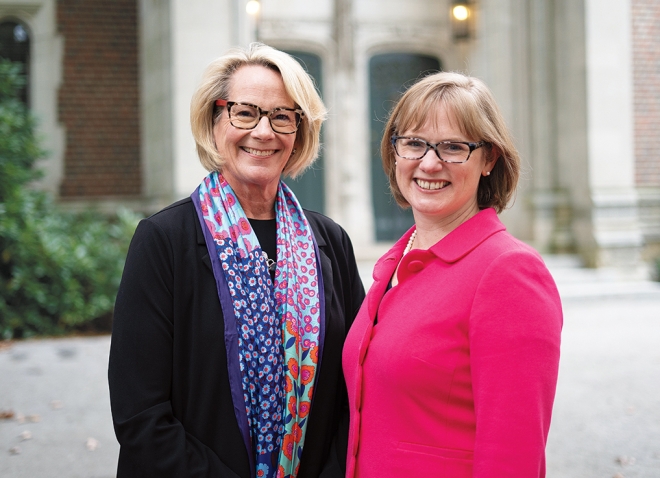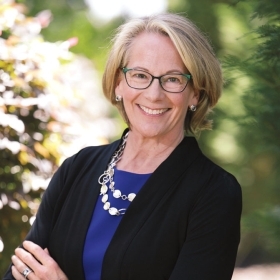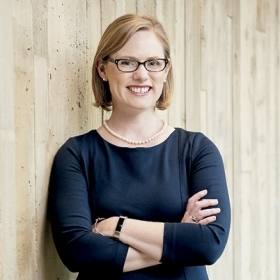As WCAA President Laura Wood Cantopher ’84 shared in the summer magazine, the WCAA board recently proposed a change to its structure and its relationship to the College. The goal of the proposed change is to further harness the power and influence of Wellesley alumnae—on our alma mater and in the world. The next issue of the magazine will include details of the proposed change, which we will ask the alumnae body to endorse with a vote in May. Here, we hope some additional context will help elucidate what we—both the WCAA and the College—hope to accomplish with this change.
The governance structure of the WCAA does not typically impact the day-to-day experience of alumnae. Those of you who have been involved as board members or volunteers over the years will have an intimate understanding of the structure, but most alumnae have a relationship to the College that is, and will continue to be, unaffected by the WCAA’s status as a separate entity. Currently, as a separate 501(c)(3), the WCAA is required to file taxes, conduct an external audit, and engage in a fair amount of other operational overhead, simply based on its “separateness.” But in reality, and in the experience of alumnae, we don’t act “separate.” The WCAA staff are employees of the College; however, Executive Director Kathryn Harvey Mackintosh ’03 reports to Laura Wood Cantopher ’84, the president of the WCAA board, who is a volunteer. And while we love working together, to be honest, it’s not a best practice for an employee to report to a volunteer, especially one that changes every three years. Ultimately, our mission is all about engaging alumnae with one another and the College in support of Wellesley’s strategic objectives—so separateness only creates obstacles to fulfilling that mission.
Two years ago, when the College’s strategic plan was published, the WCAA engaged external consultants to help us articulate a set of shared objectives with the College, develop an organizational structure and governance model that would support them, and create an implementation plan for any associated changes. Based on that work, we’ve taken certain steps already, such as restructuring the WCAA staff to centralize volunteer support and increase focus on engaging current students and our youngest alums.
One of the most compelling findings in this report was that the structure of the WCAA and the College as two separate 501(c)(3)s was inefficient and outdated. Those are two words we certainly didn’t like to hear associated with the work of the WCAA! We prefer to think of ourselves as “modern” and “innovative.” As we’ve shared previously, alumnae relations is at the intersection of nostalgia and innovation, and that’s right where the WCAA wants to be.
There were some incredible “aha” moments as we read the report from our consultants and engaged in meaningful and productive conversations with members of the College’s senior leadership team, board of trustees, and the WCAA board of directors about our shared vision for alumnae relations at Wellesley. One of the biggest “ahas” was the fact that, in the current structure, there isn’t a member of the senior leadership team whose remit includes alumnae relations specifically. Of course, each and every member of that team is thinking about our alumnae and is supportive of the WCAA, but in their goals and objectives, and in budget conversations, the WCAA is not currently represented, other than as an outside collaborator.
This may be one of the most important changes ahead if the integration we’re proposing takes place when we—the alumnae body—vote in May 2024. For the first time in its history, the WCAA will be positioned within the College structure, closer to the core of the institution.
This has been a long journey and has involved careful thought by many people who care deeply about you and about Wellesley. We ask ourselves regularly, “Are we doing what’s best for Wellesley and our alumnae?” We believe that merging the WCAA’s 501(c)(3) into the College is what is best. Look for the detailed language regarding this change in the next issue of this magazine. And in the meantime, thank you for caring so deeply for our alma mater and supporting her in all the ways that you do.







We ask that those who engage in Wellesley magazine's online community act with honesty, integrity, and respect. (Remember the honor code, alums?) We reserve the right to remove comments by impersonators or comments that are not civil and relevant to the subject at hand. By posting here, you are permitting Wellesley magazine to edit and republish your comment in all media. Please remember that all posts are public.